Conductivity 4-20mA transmitter
289,00 € – 305,00 € excluding VAT
Our conductivity transmitter measures liquid conductivity with any standard 2 electrode analog sensor. This transmitter is a measuring device that measures the resistance between the conductivity sensor cells and it converts the measured value to a linear 4-20mA analog signal, which can be connected to a PLC. The accuracy of the measurement depends highly on the quality of the sensor.
Delivery within 2-3 days across the EU and 7-10 days worldwide
*Delivery dates may change based on your quantity and delivery address.
All orders are delivered by DHL ![]()
Enjoy free worldwide shipping on orders over 500EUR
About this device
This conductivity transmitter measures the electrical resistance of a solution using a sensor with electrodes, converts this resistance into a conductivity value, and then, transmits this value for monitoring and control purposes.
A brief explanation of how conductivity measuring and the transmitter work:
Sensor
The transmitter needs a conductivity sensor probe, which typically consists of two or four electrodes. These electrodes are made from materials that are good conductors of electricity, often stainless steel. The precision of these conductivity measurements significantly hinges on the quality of the conductivity sensor. While our conductivity transmitter can be paired with any conductivity sensor, we always suggest using our high-quality sensors to achieve the best results.
.
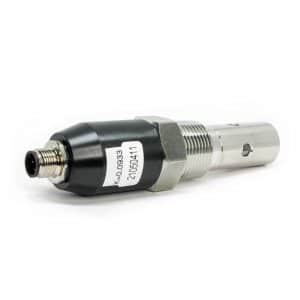
Measurement Principle
When the sensor is immersed in a solution, the conductivity of the solution affects the electrical resistance between the electrodes. Solutions with higher ion concentrations (higher conductivity) allow electric current to pass more easily between the electrodes, resulting in lower resistance. For instance, if we immerse the conductivity sensor in saltwater, a good conductor, it registers high conductivity due to the effortless flow of current between the electrodes. Conversely, when the sensor is placed in purified water, which lacks good conductive properties, the transmitter records low water conductivity
Excitation Signal
The transmitter generates an alternating sinusoidal current (AC) excitation signal that is applied to the electrodes of the sensor. This excitation signal induces a small electric field in the solution around the electrodes. On the wifi model, you can change the frequency of the excitation signal.
Detection of Voltage Drop
The transmitter measures the voltage drop across the electrodes caused by the current flowing through the solution. This voltage drop is proportional to the solution’s conductivity. A higher conductivity solution will have a lower voltage drop and vice versa.
Calibration and Compensation
To convert the voltage drop into a meaningful conductivity value, the transmitter is often calibrated using solutions of known conductivity value. Conductivity is also influenced by temperature. We have another product that can compensate the conductivity value according to the fluid temperature.
Transmission
Once the transmitter calculates the conductivity value, it can transmit this data to a control system, data logger, or other monitoring devices, using an analog 4-20mA output.
Maintenance and Cleaning
It’s important to regularly clean and maintain the conductivity sensor since the accumulation of deposits or contaminants on the electrodes can affect the accuracy of measurements. The transmitter does not require any maintenance.
Variations
Choose the product that best suits your needs from our range. Our conductivity transmitters are available in 2 versions: LSP-TSC and LSP TSC-WIFI The WiFi version allows the user to connect and change the parameters. The device has a built in web interface that can be accessed from a phone, tablet or laptop on WiFi connection. No application or additional software needed, you can access the menu from your internet browser. .

In the version without wifi, there is no possibility to change parameters afterward. During the ordering, you need to communicate the desired parameters which will be provided at the time of production.
Applications
- Water treatment: monitoring the conductivity of water in treatment and purification processes.
- Chemical processing: monitoring the conductivity of chemicals in industrial processes, ensuring that you can maintain optimal process conditions.
- Food and beverage production: it can be used to monitor the conductivity of liquids such as milk, juice, and beer with the corresponding sensor
Conductivity transmitters find extensive use in water treatment facilities. In such systems, the water conductivity measurements are collected by a central processing unit (PLC) that controls the system.
Notable Features
• Cable capacity compensation
• 4 to 20 mA analog signal output
• TS-35 DIN rail mounting for flexible installation
• Accurate measurement of liquid conductivity (+/-0.1% accuracy)
• IP20 protective casing
• Screw terminals
• Electrically isolated input, output, and supply for safety
• Power LED
• Cyclical self-calibration
• WiFi module for easy configuration.
Selecting the Suitable Conductivity Sensor:
When it comes to measuring water conductivity, it’s essential to choose the right conductivity sensor. This choice relies on understanding the details of your project, such as the expected water conductivity levels, temperature variations, and the sensor’s intended location.
One key factor to consider when selecting between sensors is the cell constant or K factor. This value describes the probe’s geometry, informing you about the type of liquids it can accurately measure.
For example, sensors with a low cell constant, indicating small distances between conductor surfaces, are ideal for measuring pure and ultrapure water. On the other hand, sensors with a larger cell constant, offering more significant sensing surfaces and allowing more liquid, are suited for liquids expected to have higher conductivity than pure water. By taking into account these factors, you can confidently select the right cell constant probe for your water treatment needs.
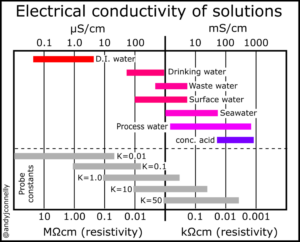
For a more comprehensive and accurate conductivity measurement, we recommend our Conductivity and Temperature transmitter.
Setup video
Let’s check this short video below to see how to wire and setup our Conductivity transmitter.

| Weight | 74 g |
|---|---|
| Dimensions | 85 × 25 × 80 mm |
| Output | Variable, 4-20 mA |
| Supply voltage | 20 to 30 VDC |
| Input | Conductivity sensor |
| Cell constants | Variable, 0.1 |
| A/D converter | 16bit |
| Output resistance | >75Ω |
| Housing material | Polyamide |
| IP Rating | IP20 |
| Mounting type | DIN rail mounting |
2 reviews for Conductivity 4-20mA transmitter
Only logged in customers who have purchased this product may leave a review.
DOCUMENTATION
RECENT REVIEWS
- I have been buying these Conductivity transmitters for years now and love them, they have a huge limit and with bluetooth connectivity you are able to calibrate and set limits. If you are wondering if this should be the last manufacture you look at for any of the products they manufacturer, look no further. Levi will also build and manufacturer custom electronic controls to your design or specification, he has done 2 different ones for me and I couldn't be happier with the results.
- Actually I have bought the transmitters one year ago ,it works very well ( I think it will be working more ) And I found levtech answer all my questions quickly By the way I am from Egypt I recommend LEVTECH for anyone in the world









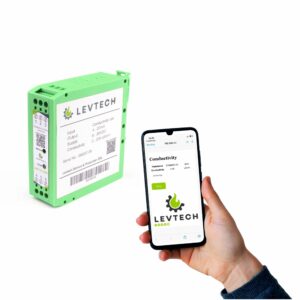
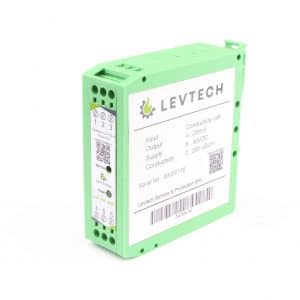








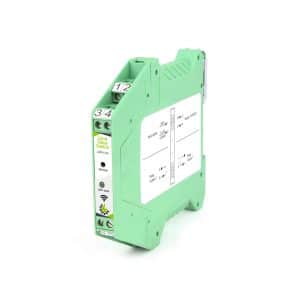
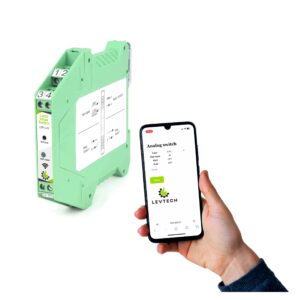
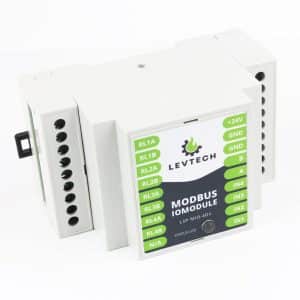
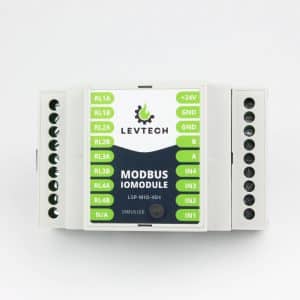


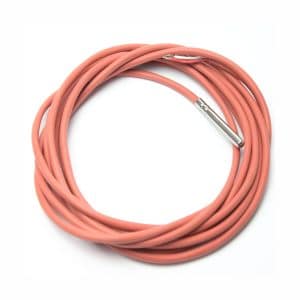
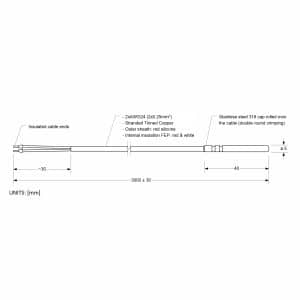



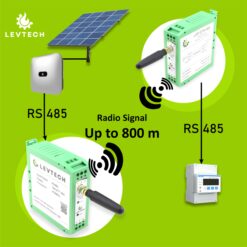
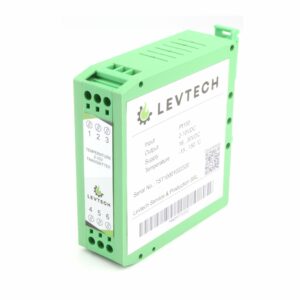
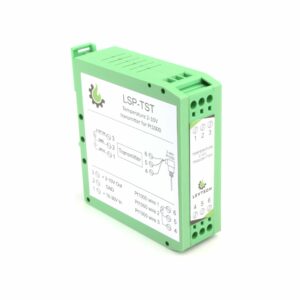
Abdurrahman –
Actually I have bought the transmitters one year ago ,it works very well ( I think it will be working more )
And I found levtech answer all my questions quickly
By the way I am from Egypt
I recommend LEVTECH for anyone in the world
Don Stolarz (verified owner) –
I have been buying these Conductivity transmitters for years now and love them, they have a huge limit and with bluetooth connectivity you are able to calibrate and set limits. If you are wondering if this should be the last manufacture you look at for any of the products they manufacturer, look no further.
Levi will also build and manufacturer custom electronic controls to your design or specification, he has done 2 different ones for me and I couldn’t be happier with the results.